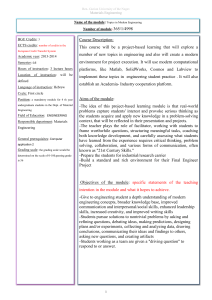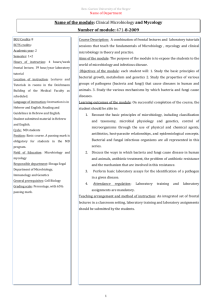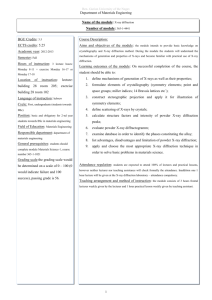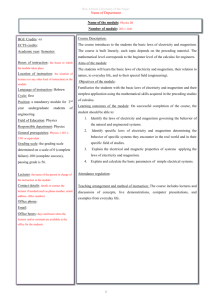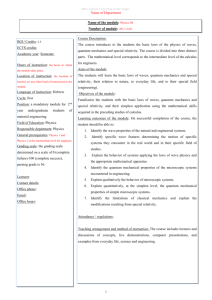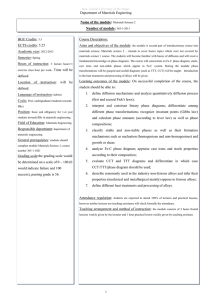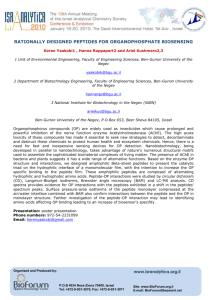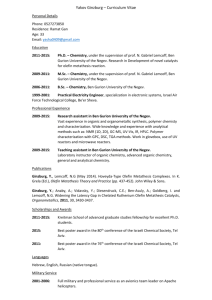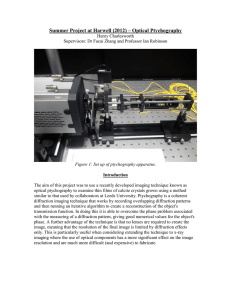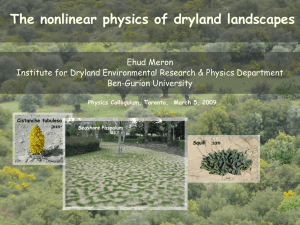Ben- Gurion University of the Negev Materials Engineering Name of
advertisement
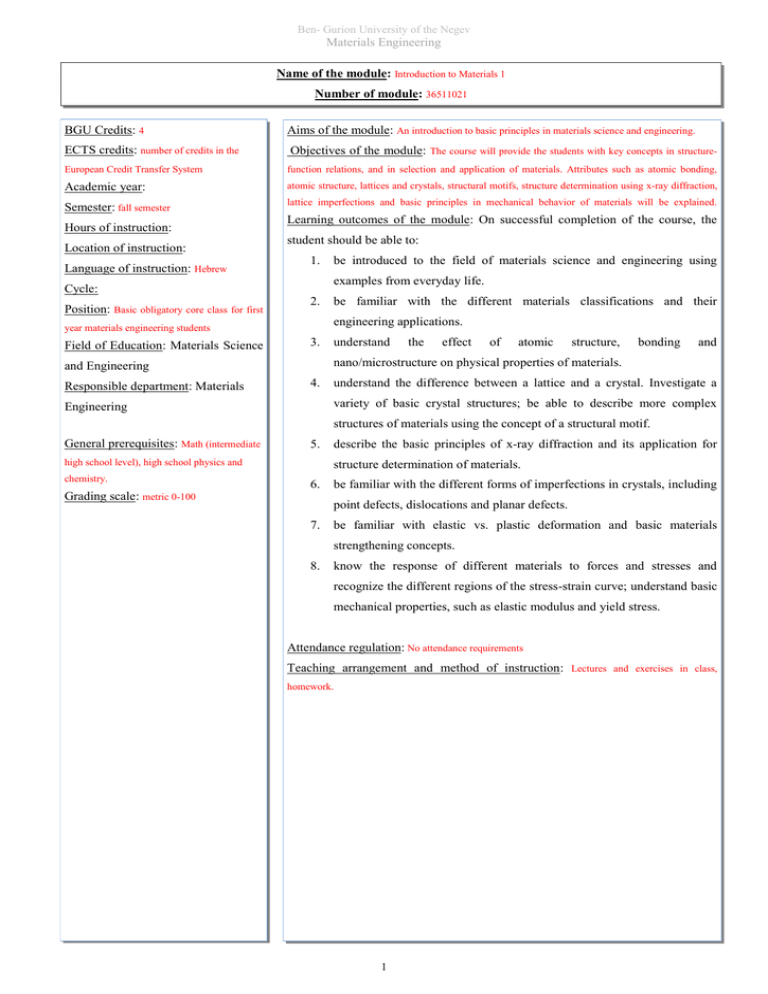
Ben- Gurion University of the Negev Materials Engineering Name of the module: Introduction to Materials 1 Number of module: 36511021 BGU Credits: 4 Aims of the module: An introduction to basic principles in materials science and engineering. ECTS credits: number of credits in the Objectives of the module: The course will provide the students with key concepts in structure- European Credit Transfer System function relations, and in selection and application of materials. Attributes such as atomic bonding, Academic year: atomic structure, lattices and crystals, structural motifs, structure determination using x-ray diffraction, Semester: fall semester lattice imperfections and basic principles in mechanical behavior of materials will be explained. Hours of instruction: Location of instruction: Language of instruction: Hebrew Learning outcomes of the module: On successful completion of the course, the student should be able to: 1. examples from everyday life. Cycle: Position: Basic obligatory core class for first 2. 3. understand the effect of atomic structure, bonding and nano/microstructure on physical properties of materials. and Engineering Responsible department: Materials be familiar with the different materials classifications and their engineering applications. year materials engineering students Field of Education: Materials Science be introduced to the field of materials science and engineering using 4. understand the difference between a lattice and a crystal. Investigate a variety of basic crystal structures; be able to describe more complex Engineering structures of materials using the concept of a structural motif. General prerequisites: Math (intermediate 5. high school level), high school physics and chemistry. describe the basic principles of x-ray diffraction and its application for structure determination of materials. 6. Grading scale: metric 0-100 be familiar with the different forms of imperfections in crystals, including point defects, dislocations and planar defects. 7. be familiar with elastic vs. plastic deformation and basic materials strengthening concepts. 8. know the response of different materials to forces and stresses and recognize the different regions of the stress-strain curve; understand basic mechanical properties, such as elastic modulus and yield stress. Attendance regulation: No attendance requirements Teaching arrangement and method of instruction: Lectures and exercises in class, homework. 1 Ben- Gurion University of the Negev Materials Engineering Lecturer: Professor Yuval Golan Assessment: Contact details: Building 51 Office 308 how the students will be assessed in the module Office phone: 61474 1. Homework 10% Email: ygolan@bgu.ac.il 2. Midterm exam 10% Office hours: 3. Final exam 80% (must pass exam in order to pass course) 100% Module evaluation: at the end of the semester the students will evaluate the module, in order to draw conclusions, and for the university's Work and assignments: 1. Submission of 4-5 sets of homework. Submission deadline will be announced for each set. After the deadline a solution will be uploaded to the course website internal needs. Confirmation: the syllabus 2. Midterm exam will be held late in December 3. Final exam will be held during exam period. was confirmed by the faculty academic Time required for individual work: in addition to attendance in class, the students advisory committee to be valid on are expected to do their assignment and individual work: 2012-2013. 1. Homework: 2-3 hours per week 2. Midterm exam: 10-12 hours 3. Final exam: 24-30 hours Last update: September 2013 2 Ben- Gurion University of the Negev Materials Engineering Module Content\ schedule and outlines: Lectures: Hours Introduction to materials 3 Materials classification and selection 3 Chemical bonding in the solid state 3 Lattices and crystals 3 Investigation of basic crystal structures 3 Linear and planar densities 3 Description of complex structures using structural motif 3 Structure determination using x-ray diffraction 6 Defects in crystals 3 Energetics and reactions of dislocations 3 Introduction to mechanical properties of materials 6 Required reading: Science and Engineering of Materials, Askeland, D. and Phule, P., Thomson - Engineering, 2002, 4th Ed. * All learning material will be available to the students on the module's website (high-learn)/ library/ electronic documents available to BGU students. 3
